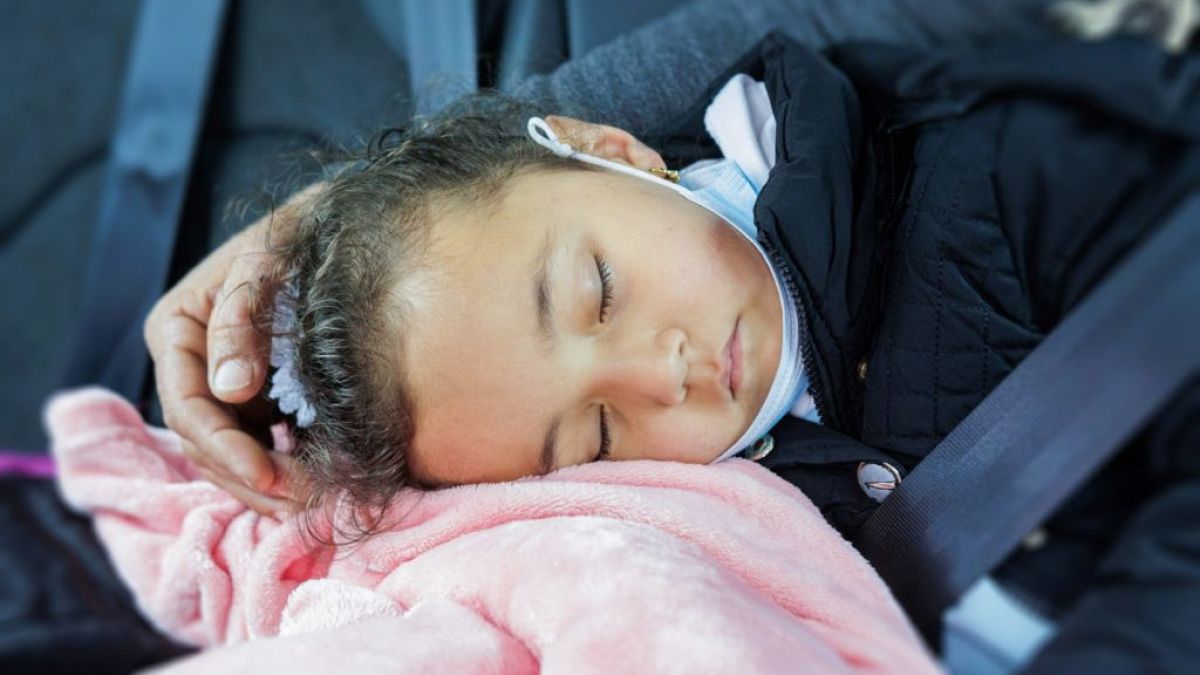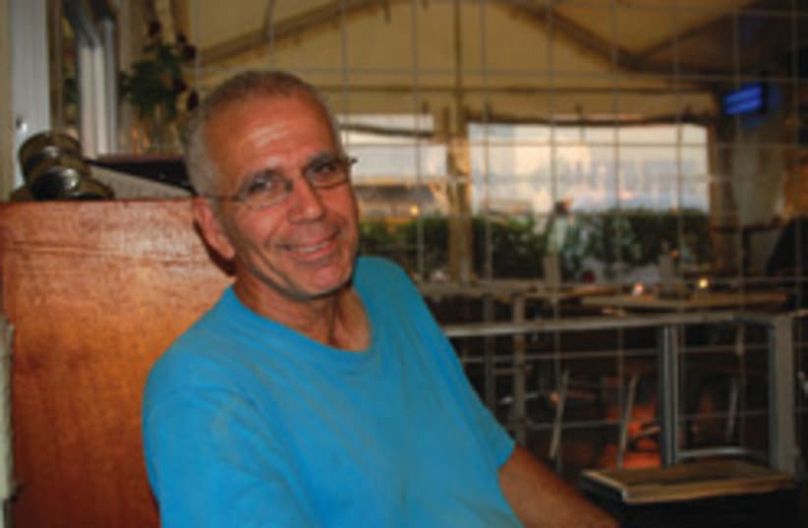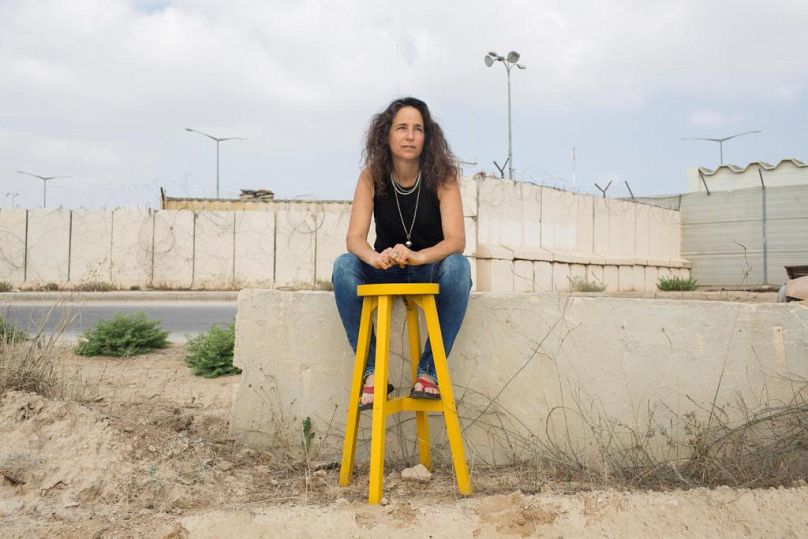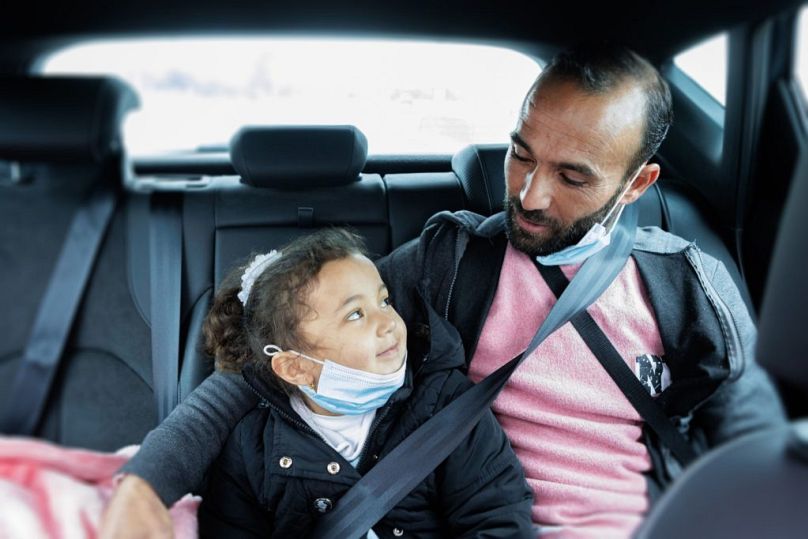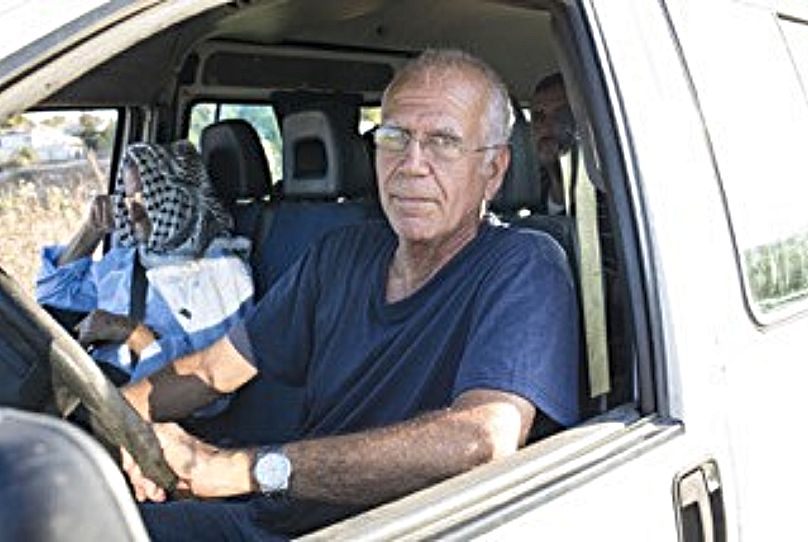Road to Recovery has been helping Palestinians get to hospital appointments across the border into Israel for years – but Hamas' attack on 7 October has made its volunteers' work much harder.
In 1993, Yuval Roth's brother was killed by Hamas. But rather than write off Palestinians as dangerous, he instead joined The Parents Circle-Families Forum, a group bringing together Israelis and Palestinians who have lost family in the Israeli-Palestinian conflict.
When 2006 rolled around, a Palestinian member of that forum came to Roth, asking for his help transporting an ill family member to Rambam Hospital in the Israeli city of Haifa.
For years, Palestinian citizens have only been admitted to Israel in exceptional humanitarian cases. And a number of Israelis wanted to make travel out of the Palestinian territories less difficult for those affected by extreme personal circumstances.
One Roth agreed to drive that Palestinian to the appointment and began recruiting some of his friends to help as well. Soon, he received a donation from singer-songwriter Leonard Cohen.
Bolstered by the support, Roth decided to turn his collective of volunteers into a non-profit organisation, and Road to Recovery was officially founded in 2010.
By 2018, the group had nearly 2,000 volunteers. In total, they made more than 20,000 patient trips for those needing everything from dialysis to organ transplants in that year alone. Roth says he sees its work as an act of reconciliation in his brother's honour.
But since Hamas’s attack on Israel on 7 October, in which some 1,200 people were killed, everything has changed.
Four Road to Recovery volunteers were killed in the attack; two others, 83-year-old Oded Lifschitz and 79-year-old Chaim Peri, are still being held hostage in Gaza.
And the Israeli bombardment and invasion of the Gaza strip, an onslaught that has claimed more than 20,000 lives, means that Road to Recovery can no longer assist people who live there.
Yael Noy, the charity's CEO, says despite the limitations, Road to Recovery is still able to continue in the West Bank, but there are fewer checkpoints open now.
Volunteers are currently driving around 140 people every day to Israeli hospitals.
While the numbers have dropped off – workers in Noy’s coordinator centre numbered 17 before the war and are now just, she says, “8 or 9” – many Israelis are still keen to help those across the border.
“Everything changed in Israel on 7 October,” Noy tells Euronews.
“But, from 8 October, our organisation kept on doing what we're doing,” she adds.
Noy explains that now the conflict is more established, she is receiving daily calls from Israelis who want to help with the charity’s efforts.
Despite the pain and suffering, these people see Palestinians in need as human beings, and understand they are not all affiliated with Hamas.
But that's not the way everyone thinks.
“Many Israelis think all of the people in Gaza are Hamas, from a little child to an old woman," says Noy. "They say it's war time – we are enemies, we cannot help the enemy now. But on both sides, there are good people and bad people.”
While Noy says she and her volunteers rarely feel as though they are in danger, she tells Euronews she fears the day may well come when they face aggression from people opposed to their work.
“We're not there yet," she says, "but maybe.
"After I spoke to the press earlier in the war, I got some phone calls from blocked numbers. They said very bad words to me and told me what violent things they wanted to do to me. Some people would just stay at home after such an incident as it would be easier - but I can’t.”
Noy now lives in northern Israel, close to Lebanon, but grew up in a kibbutz.
Her parents were living in Kibbutz Alumim, one of the communities which was attacked by Hamas, and are now displaced.
To make the conflict even more personal, two of Noy’s nephews have been fighting in Gaza as part of Israel's response to the October attacks.
For many in Israel, the plight of those in Gaza is fairly alien.
Local media, Noy tells Euronews, rarely covers the thousands of deaths and the lack of food, electricity and water available to millions of Palestinians.
"They need to open their eyes and listen. The majority don't know anything about it. Even those that do don’t want to talk about it here."
Road to Recovery receives no government funding, and the volume of donations from Israelis has dropped off since the conflict began. Yet Noy is somehow managing to keep the faith, even as her charity remains angry at Prime Minister Benjamin Netanyahu and his cabinet.
“I'm not a politician. I don't know what the government can do. But I know what my organisation needs. We're holding a little candle of light in this terrible area and we just need the support of the world,” she says.
“We need support from across the globe, you know, because, in Israel, no one will support us now.”
